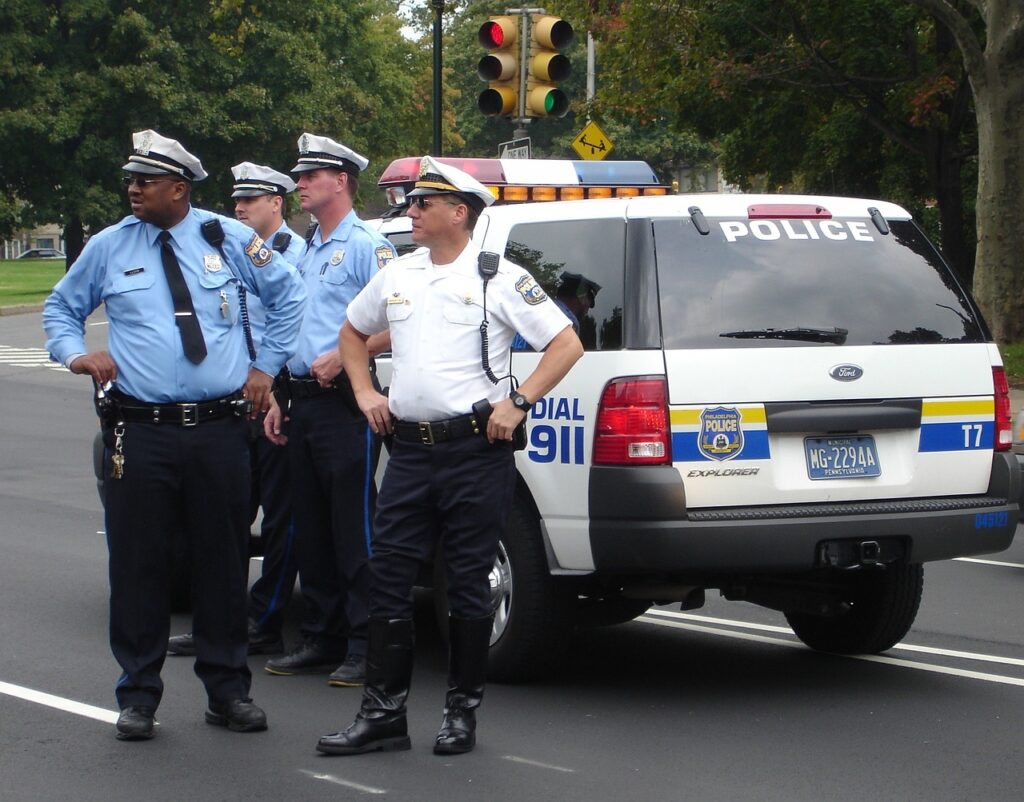Law enforcement plays a crucial role in maintaining safety and order in society. A wide range of career opportunities exists within this field, each with its unique responsibilities and requirements. For adult learners and non-traditional students, Pathways to Advancement offers valuable guidance and support to help navigate the pursuit of a rewarding career in law enforcement.
Local and County Law Enforcement Careers
At the local and county levels, law enforcement careers include police officers, sheriff’s deputies, and detectives. These professionals are responsible for maintaining public safety, enforcing laws, and investigating crimes within their jurisdictions.
Police Officer
Police officers play a vital role in protecting communities by responding to calls, enforcing laws, and preventing criminal activity. To become a police officer, candidates must meet specific qualifications, such as age and physical fitness requirements, and complete rigorous training at a police academy. As they gain experience, police officers can advance their careers by taking on specialized roles or pursuing promotions within their department.
Sheriff’s Deputy
Sheriff’s deputies perform similar duties to police officers, but they work for a county sheriff’s office rather than a local police department. In addition to law enforcement responsibilities, sheriff’s deputies may also serve court documents, manage county jails, and provide security for courtrooms. Like police officers, sheriff’s deputies must meet certain qualifications and complete specialized training before beginning their careers. Opportunities for career advancement include promotions to higher ranks or specialized units within the sheriff’s office.
Detective
Detectives are experienced law enforcement officers who focus on investigating crimes and gathering evidence. They conduct interviews, examine crime scenes, and work closely with other members of the criminal justice system, such as forensic experts and prosecutors. Detectives typically start as patrol officers and advance to the detective position after gaining experience and demonstrating strong investigative skills. Further career advancement opportunities include promotions to supervisory or specialized investigative roles.

State Law Enforcement Careers
At the state level, law enforcement careers include state troopers and fish and game wardens. These officers have a broader scope of authority, often covering an entire state or specific state-regulated jurisdictions.
State Trooper
State troopers are responsible for enforcing criminal laws and traffic regulations on state highways and roads. Their duties include patrolling highways, investigating accidents, and apprehending suspects. To become a state trooper, candidates must meet specific qualifications and complete a state police academy training program. As they gain experience, state troopers can advance their careers by pursuing promotions or joining specialized units within the state police department.
Fish and Game Warden
Fish and game wardens are specialized law enforcement officers who manage and protect wildlife, enforce hunting and fishing laws, and patrol natural areas. They are responsible for investigating wildlife crimes, conducting search and rescue operations, and educating the public about conservation efforts. To become a fish and game warden, candidates must meet specific qualifications and complete a training program focused on wildlife law enforcement. Career advancement opportunities include promotions to supervisory roles or specialized positions within the agency.
Federal Law Enforcement Careers
Federal law enforcement careers span a wide range of roles and responsibilities, including FBI agents, border patrol agents, immigration inspectors, and air marshals. These officers work to enforce federal laws and protect national security.
FBI Agent
FBI agents investigate crimes and protect national security by gathering intelligence, conducting surveillance, and working undercover. They specialize in areas such as cybercrimes, financial fraud, and counterterrorism. To become an FBI agent, candidates must meet stringent qualifications and complete a comprehensive training program at the FBI Academy. Career advancement opportunities include promotions to supervisory positions or joining specialized units within the FBI.
Border Patrol Agent
Border patrol agents enforce federal laws at international borders, preventing illegal immigration, drug smuggling, and human trafficking. They patrol vast territories and use advanced technology to detect and apprehend violators. Candidates must meet specific qualifications and complete a rigorous training program before becoming border patrol agents. Opportunities for career advancement include promotions to supervisory roles or joining specialized teams such as the K-9 unit or SWAT.
Immigration Inspector
Immigration inspectors examine individuals and goods entering the United States to identify potential violations of immigration and customs laws. They work at airports, seaports, and land border crossings to enforce federal regulations. To become an immigration inspector, candidates must meet specific qualifications and complete specialized training. Career advancement opportunities include promotions to supervisory positions or joining specialized units within the agency.
Air Marshal
Air marshals work undercover to ensure the safety of passengers on commercial flights and prevent acts of terrorism. They also participate in multi-agency task forces and provide support for other federal law enforcement agencies. Candidates must meet stringent qualifications and complete a comprehensive training program before becoming air marshals. Career advancement opportunities include promotions to supervisory roles or joining specialized units within the agency.

Specialized Units and Support Roles
Within the field of law enforcement, there are various specialized units and support roles that work alongside officers to ensure public safety and efficient investigations. These roles include SWAT teams, K-9 units, bomb squads, crime analysts, firearms examiners, and intelligence analysts.
SWAT Teams
SWAT (Special Weapons and Tactics) teams are highly trained units that handle high-risk situations, such as hostage rescues, counter-terrorism operations, and high-profile arrests. They are equipped with specialized weaponry and tactics to resolve dangerous incidents effectively and safely.
K-9 Units
K-9 units consist of police officers partnered with highly trained dogs to perform tasks such as tracking suspects, detecting narcotics and explosives, and searching for missing persons. These canine partners are invaluable in enhancing the capabilities of law enforcement agencies.
Bomb Squads
Bomb squads are specialized units responsible for the safe handling and disposal of explosive devices and hazardous materials. They use advanced equipment and techniques to assess, neutralize, and remove potential threats to public safety.
Crime Analysts
Crime analysts play a critical role in law enforcement by collecting, analyzing, and interpreting data related to criminal activity. They help agencies identify patterns and trends, develop crime prevention strategies, and allocate resources more effectively.
Firearms Examiners
Firearms examiners are forensic experts who analyze firearms, ammunition, and ballistic evidence to aid in criminal investigations. They provide crucial information to investigators by determining the type of weapon used, linking evidence to specific firearms, and identifying potential suspects.
Intelligence Analysts
Intelligence analysts gather and analyze information related to threats to public safety and national security. They support law enforcement operations by providing insights into criminal organizations, terrorist activities, and other potential risks.

Preparing for a Career in Law Enforcement
To pursue a career in law enforcement, candidates must meet various education and training requirements that vary by position. Before embarking on a law enforcement career, it is crucial to meet the physical fitness and background check requirements typically associated with these roles. Developing strong communication and critical thinking skills will also serve as a solid foundation for success in this field.
Gaining relevant experience through internships, volunteer work, or part-time jobs in related fields can help individuals build their resumes and showcase their dedication to a career in law enforcement. Finally, pursuing additional certifications or specialized training can enhance one’s qualifications and open up new opportunities for career advancement.
Education and Training Requirements
Law enforcement careers typically require a high school diploma or equivalent, though some positions may require a college degree. Additionally, candidates must complete specialized training programs, such as police academies or federal law enforcement training centers, to gain the skills and knowledge necessary for their chosen career path.
Importance of Lifelong Learning
As law enforcement professionals advance in their careers, they must continually update their skills and knowledge to stay current with evolving technologies, laws, and best practices. Engaging in lifelong learning through professional development courses, workshops, and conferences can help officers remain effective and competitive in their field.
Pathways to Advancement’s Resources for Career Planning and Education
Pathways to Advancement offers valuable guidance and support for adult learners and non-traditional students pursuing careers in law enforcement. Their resources include career planning advice, information on education programs matched to career goals, and unbiased insights from experts. By taking advantage of these resources, aspiring law enforcement professionals can make informed decisions about their education and career path.
Unlock Your Law Enforcement Potential
Ready to explore a rewarding career in law enforcement?
Law enforcement careers offer a wide range of opportunities at local, state, and federal levels, with various specialized units and support roles available. These rewarding careers require specific education, training, and a commitment to lifelong learning. Visit Pathways to Advancement for more information on education and career planning. Take advantage of our personalized education matching and unbiased advice from experts to help you navigate your journey towards a successful career in law enforcement. Don’t wait – start planning for your future today!
